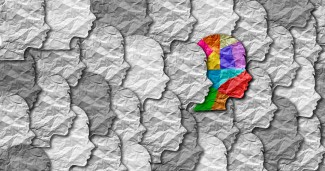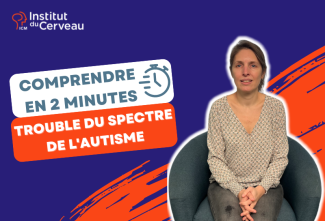The symptoms of autism can appear in a child’s first year but must be sufficiently severe, and more intense than what would be expected at the child’s stage of development and culture to allow a diagnosis. These criteria of intensity and persistent symptoms make it difficult to screen for ASD before school age.
The different symptoms of autism
- Altered social interactions and communication Difficulty developing, maintaining and understanding social relationships
- Non-verbal communication impairments
- Absence of social-emotional reciprocity
- Restricted and repetitive behaviors or interests
- Repetitive or stereotyped language or movements
- Intolerance of change, unwavering adherence to routines
- Narrow interests that are abnormally intense or focused
- Invasive hyper- or hypo-reactivity to sensory stimuli
The signs of autism are present from early childhood but are not necessarily evident until social demands begin to exceed the person’s capacities. This can be why a later diagnosis occurs.
However, the signs of autism never appear in adolescence or adulthood if they were not already present.
For a diagnosis to be made, the clinical signs must have an impact on how the person functions.
Signs of ASD can be evident in two major areas:
- Social interactions and communication
- Behaviors and interests
- Altered social interactions and communication
- Difficulty developing, maintaining and understanding social relationships
- Non-verbal communication impairments
- Absence of social-emotional reciprocity
- Restricted and repetitive behaviors or interests
- Repetitive or stereotyped language or movements
- Intolerance of change, unwavering adherence to routines
- Narrow interests that are abnormally intense or focused
- Invasive hyper- or hypo-reactivity to sensory stimuli
At Paris Brain Institute
The team co-led by Inserm researcher Mathias PESSIGLIONE, in collaboration with a Canadian team, studied mimetic desire in people with autism to explain why they experience altered social motivation and interactions.
Mimetic desire is a person’s spontaneous desire for the same things as other people. In children, for example, this could be to have the same toy as their classmate.

People with ASD often feel very unsettled by changes in their environment, such as changes in furniture layout at home, or a change of teacher at school. They often exhibit repetitive behaviors such as rocking or clapping their hands. Patterns of repetition, such as eating the same foods at each meal, or watching the same video every day, can also be observed.
Children and adults with autism may exhibit very specific, narrow and sometimes peculiar interests, such as electric motors, bin bags or traffic signs.
Sensory symptoms can manifest as hyper or hypo reactivity to smell, temperature or pain.
People with autism frequently have one or more associated disorders (psychiatric disorders or other disorders, e.g. heart problems, neurological problems, etc.).
Around one third of people with autism also have an intellectual development disorder (i.e. a disorder with an IQ below 70).
It is estimated that 1 in 5 people with autism suffers from epilepsy.
Some patients have special abilities that are highly focused and specialized, such as a strong aptitude for mental calculus or enhanced pitch perception. However, these abilities are rare and are not part of the diagnostic criteria.



